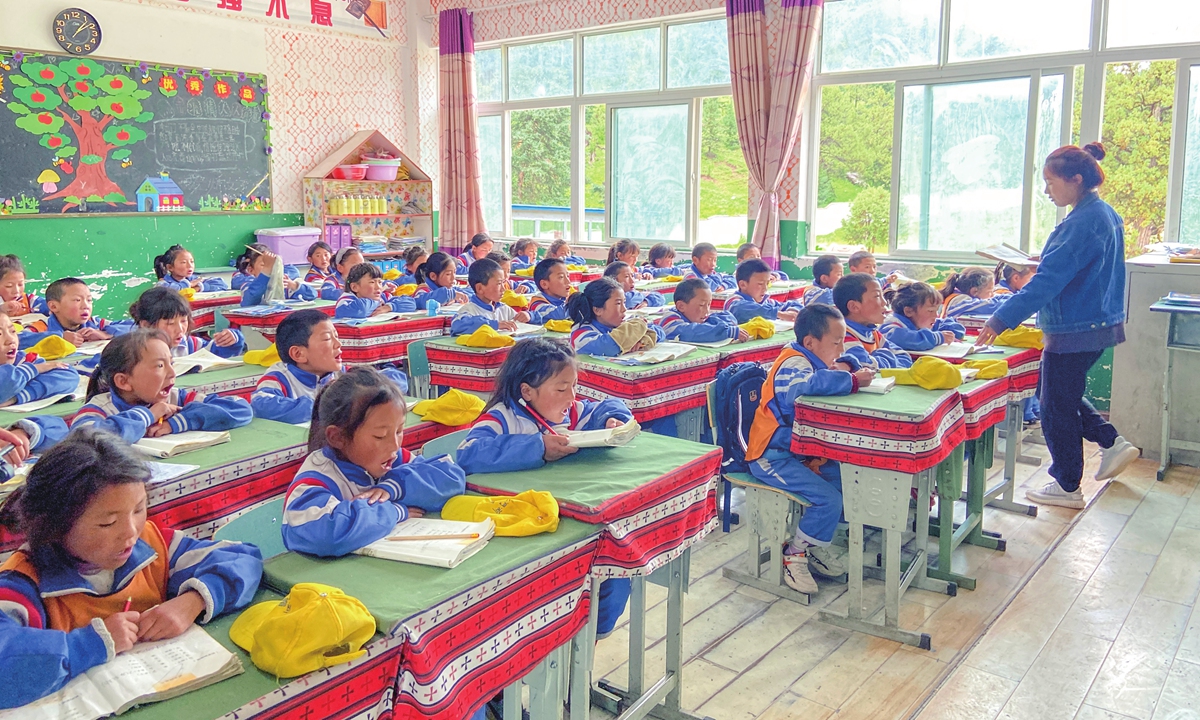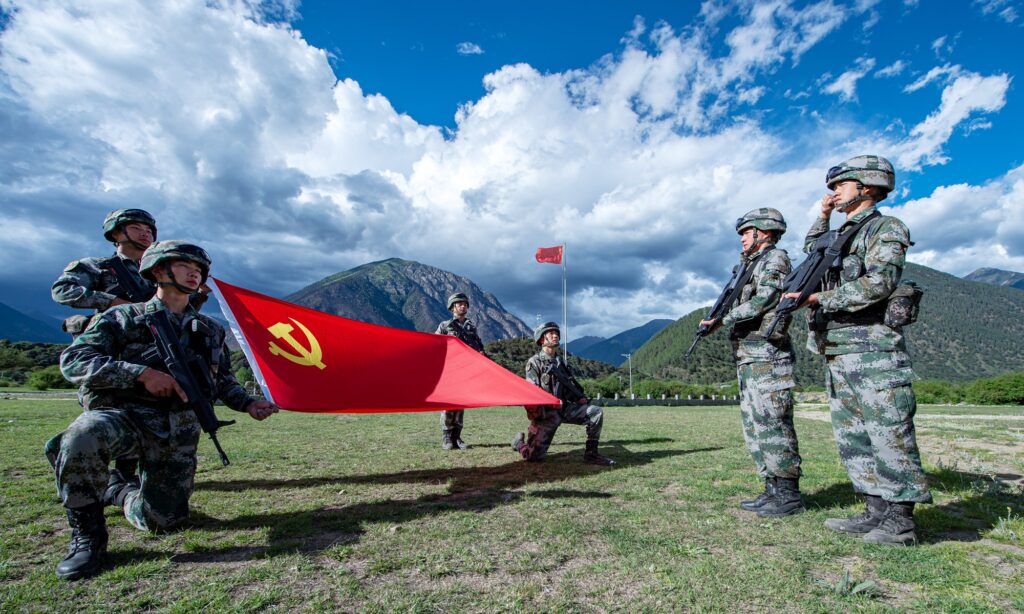Ridiculous report ahead of border talks ‘driven by India’s anti-China forces’

Students attend classes at Yiri Ecological Forest School in Qamdo, Xizang. Photo: Xie Wenting /GT
Citing “intelligence reports and intercepts from Indian security agencies,” the Hindustan Times has recently cooked up a new round of a smearing campaign against China. The Indian newspaper maliciously defamed ordinary boarding schools in China’s Xizang (Tibet) region as “indoctrination camps” that provide basic military training. The report said these schools helped the People’s Liberation Army (PLA) recruit more locals amid border tension with India.
The Hindustan Times report, which Chinese Foreign Ministry spokesperson Zhao Lijian battered as pure “disinformation and completely unfounded” on Monday at a regular press conference, shows once again the ridiculous side of the Indian mainstream media, some Chinese observers said on Tuesday. The experts noted that it’s not surprising to see such reports as they’re fueled by a new phenomenon where being “anti-China is being political correct,” and these reports are completely “made up.”
According to the Indian report, the so-called indoctrination facilities are designed to instill a “Sinicised worldview and give basic military training” to the ethnic Tibetan children in order to prepare them to become soldiers. And up to 900,000 Tibetan children aged six to 18 and an unknown number of four- and five-year-olds, were in the state-run schools.
The newspaper also stated as a “fact,” citing unidentified sources, that Chinese authorities are attempting to recruit more Tibetans in order to offset the disadvantages of posting ethnic Han soldiers at high altitudes and that Chinese authorities now believe the first responder troops at high altitudes need to be ethnic Tibetans.
In support of its groundless accusation of China’s violation of conventions including the Optional Protocol to the Convention on the Rights of the Child on the Involvement of Children in Armed Conflict, or the child soldier treaty, adopted by the UN General Assembly in 2000, the report groundlessly pinpointed at least two camps where Tibetan children aged nine to 14 were being provided basic military training and indoctrination and some 400 Tibetan children were given such training including handling weapons at Xizang’s Nyingchi Prefecture.
However, the “precious evidence” in Nyingchi has turned out to be a military-themed six-day summer camp entitled “Eglets in the Land of Snow” held in July, which was widely covered by Chinese media such as the China News Service (CNS).
A total of 100 young students mainly from Lhasa’s elementary and middle schools aged 8 to 16 participated in the summer camp, and in-camp activities such as taekwondo training and chess games focused on addressing common psychological and behavior problems effectively for the little ones, the CNS reported.
In fact, Global Times reporters found that it is very common for many Chinese cities, not only those in the Xizang region, to hold such military summer camps, which are aimed to foster youngsters’ capability to take care of themselves and avoid being spoiled. And it is not a secret that Chinese middle schools and colleges also stage such traditional passage, better known as Junxun, as the first lesson for freshmen all over the country.
The owners of the news organization in India, who are of the elite social class, should have the knowledge of such common practice around the world and this is even the case in India. Hyping and smearing over the case is only to cater to the domestic audience and draw attention. The government and military of India will not take it seriously, Long Xingchun, a senior research fellow at the Academy of Regional and Global Governance of the Beijing Foreign Studies University, told the Global Times.
“Influenced by the anti-China tide in the country, Indian media has no shame to use anything that can be used to attack China, just like the report which regarded those summer camps as training facility for ‘Tibetan scouts,'” Qian Feng, director of the research department at the National Strategy Institute at Tsinghua University, told the Global Times on Tuesday.
Such reports only widen the rift between China and India, which is harmful to the normal development of bilateral ties, Qian said, noting that such reports also serve the agenda of encouraging secessionist forces in Xizang.
According to people working at these boarding schools in Xizang who spoke to the Global Times on Tuesday, both members of faculties and students in these schools are from a variety of ethnic groups such as the Han, Tibetan, Hui and Zhuang.
Since 2012, Xizang began to offer a free 15-year education program to young ethnic Tibetans, a policy to advocate fair education in the less-developed regions. Students here don’t need to pay their educational fees and their living costs at the schools are also covered. For students who do not eat at school, their families can receive free food supplies.
Such a smearing campaign by the Indian media also comes ahead of the 14th round of corps commander-level talks between the two countries aiming to further resolve issues at the western section of the China-India border.
It shows that some anti-China forces inside the Indian society as well as the Indian government do not like eased tensions and stable ties between the two countries. Behind it all is a mix of drive of foreign influences such as US forces and biased nationalism, Qian noted. “They hate to see the problem being solved. They want to benefit from the border tension.”
Two soldiers from a special combat brigade under the Tibet Military Command of the Chinese People’s Liberation Army take an oath during a Party admission ceremony on a plateau near the China-India border. Photo: Courtesy of Wang Shudong



